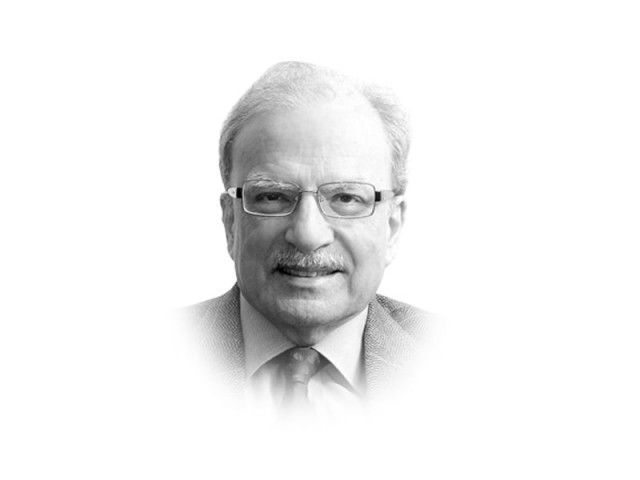Catering to a new class of consumers
By focusing on retail trade, policymakers can add to the rates of growth of agriculture, SMEs and international trade.

The writer is a former caretaker finance minister and served as vice-president at the World Bank
By bringing this sector into focus, the government could get movement out some of neglected areas. One of them is to cater to the consumption needs of the rapidly increasing lower middle class. In the work I am about to finish at the National University of Singapore’s Institute of South Asian Studies, I have suggested that for all of South Asia in general, but for Pakistan in particular, the steady increase in the flow of remittances has impacted on increasing the size of the lower middle class. Most of those who now belong to this class have climbed out of poverty largely because of the remittances they have received from the members of their families who are living and working abroad.
With the growth of the lower middle class have come new demands. Meeting them could set in place new dynamics that can begin to change the structure of country’s rural and small-town economies. Catering to this change will add a new source of growth to the economy. This is one area where public-private-partnerships would be the appropriate response. There is a great deal of foreign expertise available in this area that could be deployed to add value to agricultural produce and items of everyday consumption. Such an approach would need the government’s active involvement. Here we have a lesson to learn from the Indian experience. Pakistan should not do what the Indians have done in the last few years.
Pakistan remains much more open to foreign investment than is the case with neighbouring India. And yet, Pakistan, a country with a much more rapidly growing population and possibly with also a larger proportion of the citizenry enjoying the middle class status, is not the favoured destination for foreign investors. Poor security and random violence are the obvious reasons why foreign investors are staying away. They will come once they have the comfort that they and their investments are reasonably safe.
That Pakistan’s political system is more receptive to opening the important retail sector to foreign investors is amply demonstrated by the sharp differences in public policy choices made by the two countries in recent years. The Indian story is an interesting case study of the over-powering influence of some politically strong segments of society.
In late October 2013, Wal-Mart, by far the largest retailer in the world announced that it would close its outlets in India. It had established these in partnership with Bharti Enterprises, an Indian group that had scored some success in modernising India’s backward ‘mom and pop’ dominated retail sector. According to The Wall Street Journal, “the American company says that it can’t make a profit due to a government requirement that 30 per cent of the inventory must be secured from local channels, a rule that does not apply to Indian firms. Wal-Mart’s exit means that not a single multinational is taking advantage of India’s decision last year to allow foreign investors to own 51 per cent of the joint ventures.”
The 30 per cent provision was to overcome the twists and turns of public policy towards the retail sector which accounts for $400 billion to India’s national income. Going back to The Wall Street Journal’s editorial it pointed out that “modern distribution channels would do wonders to a country with a dismal farm-to-table transformation. An estimated 40 per cent of food in India rots or is siphoned off by corrupt hands before reaching the consumer”.
Given the greater openness of its economy and lower resistance to the entry of foreign retail firms into the country, Pakistan could take advantage of the developments across the border. If trade between the two countries is revived and fewer restrictions are placed on the movement of goods across the country, Pakistan-based retail companies could take advantage of the vast market that is available in the neighbouring country. Some large Western retail stores have successful operations in some of Pakistan’s major cities. The government would do well to partner with them and remove some of the problems they face in expanding their operations and making them more efficient. The firms operating in Pakistan would like to see more government investment in improving the transport infrastructure, linking the points of production with those of consumption.
The modernisation of the retail sector through foreign participation will bring in investment in the building of supply chains, increase domestic commerce as producers bring in the goods and commodities to the large retail groups and encourage the export of processed agricultural products possibly to the markets in India. The retail industry could become one of the drivers of growth.
Published in The Express Tribune, October 28th, 2013.
Like Opinion & Editorial on Facebook, follow @ETOpEd on Twitter to receive all updates on all our daily pieces.














COMMENTS
Comments are moderated and generally will be posted if they are on-topic and not abusive.
For more information, please see our Comments FAQ